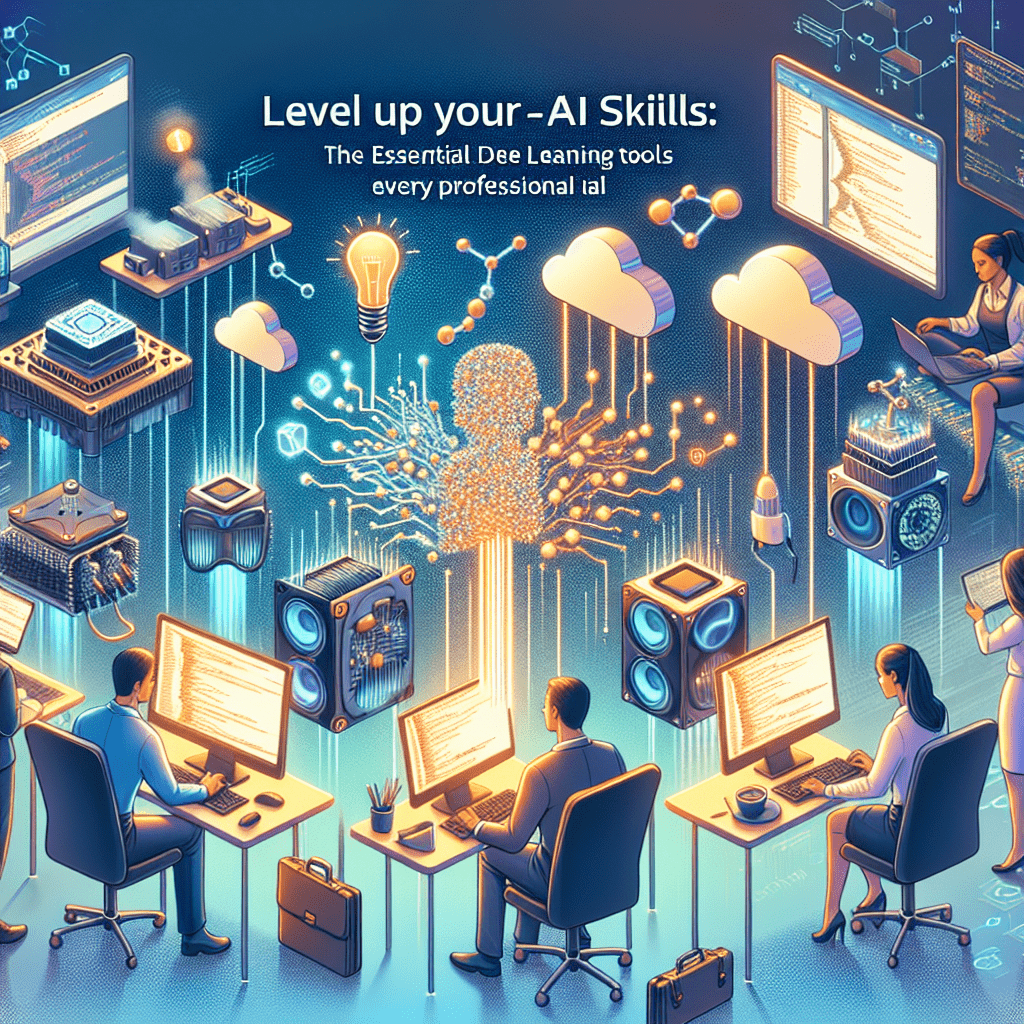Artificial Intelligence (AI) and deep learning technologies have revolutionized the way businesses operate, optimize processes, and make decisions. As a professional in this rapidly evolving field, it’s crucial to stay ahead of the curve and continuously develop your AI skills. To help you level up your capabilities, we’ve curated a list of essential Deep Learning Tools that every AI professional should have in their toolkit.
1. TensorFlow
TensorFlow is an open-source deep learning library developed by Google. It provides a comprehensive ecosystem of tools, libraries, and community resources for building and deploying machine learning models. With TensorFlow, you can easily develop, train, and deploy neural networks for a wide range of applications.
2. PyTorch
PyTorch is another popular deep learning framework that is known for its flexibility and ease of use. It allows you to build dynamic computational graphs and conduct research experiments with ease. PyTorch is widely used in academia and industry for developing cutting-edge deep learning models.
3. Keras
Keras is a high-level neural networks API written in Python that can run on top of TensorFlow, Theano, or Microsoft Cognitive Toolkit. It is designed for fast prototyping and experimentation, making it an ideal choice for beginners and advanced users alike. Keras makes it easy to build complex neural networks with just a few lines of code.
4. Scikit-learn
Scikit-learn is a simple and efficient tool for data mining and data analysis. It provides a wide range of machine learning algorithms and tools that are easy to use and well-documented. With Scikit-learn, you can quickly build and test machine learning models for classification, regression, clustering, and more.
5. OpenCV
OpenCV is a popular computer vision library that provides a wide range of tools and algorithms for image and video processing. It is widely used in AI Applications for tasks such as object detection, facial recognition, and autonomous driving. OpenCV is known for its speed and efficiency, making it a must-have tool for professionals working in computer vision.
6. Jupyter Notebook
Jupyter Notebook is an interactive coding environment that allows you to create and share documents containing live code, equations, visualizations, and narrative text. It is a powerful tool for prototyping and experimenting with machine learning models, as it allows you to write and execute code in a step-by-step manner.
Conclusion
By incorporating these essential Deep Learning Tools into your workflow, you can level up your AI skills and stay competitive in the fast-paced world of artificial intelligence. Whether you’re a seasoned AI professional or just starting out, investing in these tools will help you unlock new possibilities and drive innovation in your work.
FAQs
Q: Do I need a background in computer science to use these Deep Learning Tools?
A: While a background in computer science can be helpful, many of these tools are designed to be user-friendly and accessible to beginners. With a willingness to learn and experiment, anyone can start using these tools to develop their AI skills.
Q: Are these Deep Learning Tools free to use?
A: Yes, most of the tools mentioned in this article are open-source and free to use. However, some may offer premium features or services for a fee.
Q: How can I stay updated on the latest developments in the field of deep learning?
A: To stay informed about the latest trends and advancements in deep learning, consider following industry experts, attending conferences and workshops, and participating in online communities and forums dedicated to AI.
Quotes
“Artificial intelligence is the new electricity.” – Andrew Ng
#Level #Skills #Essential #Deep #Learning #Tools #Professional


